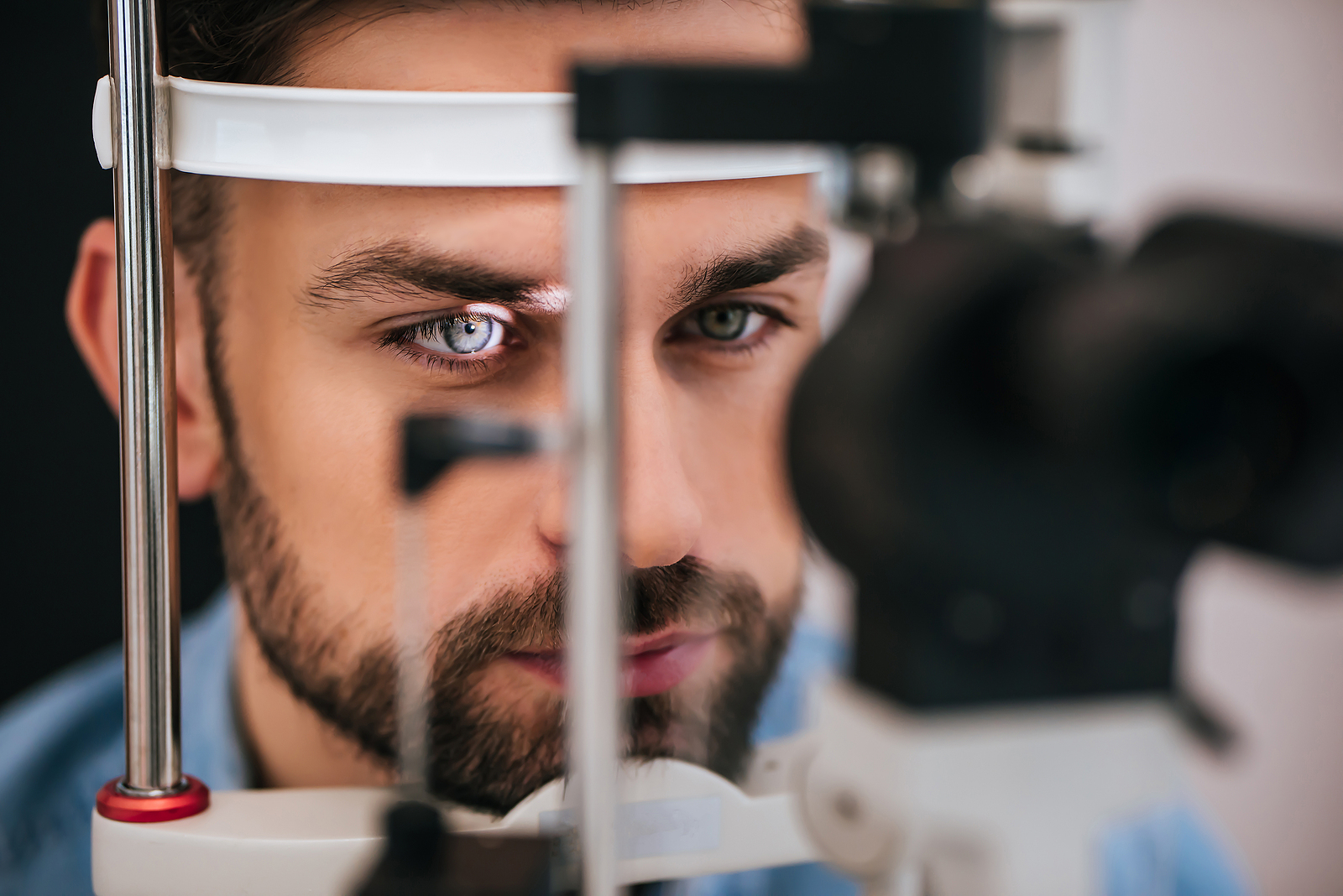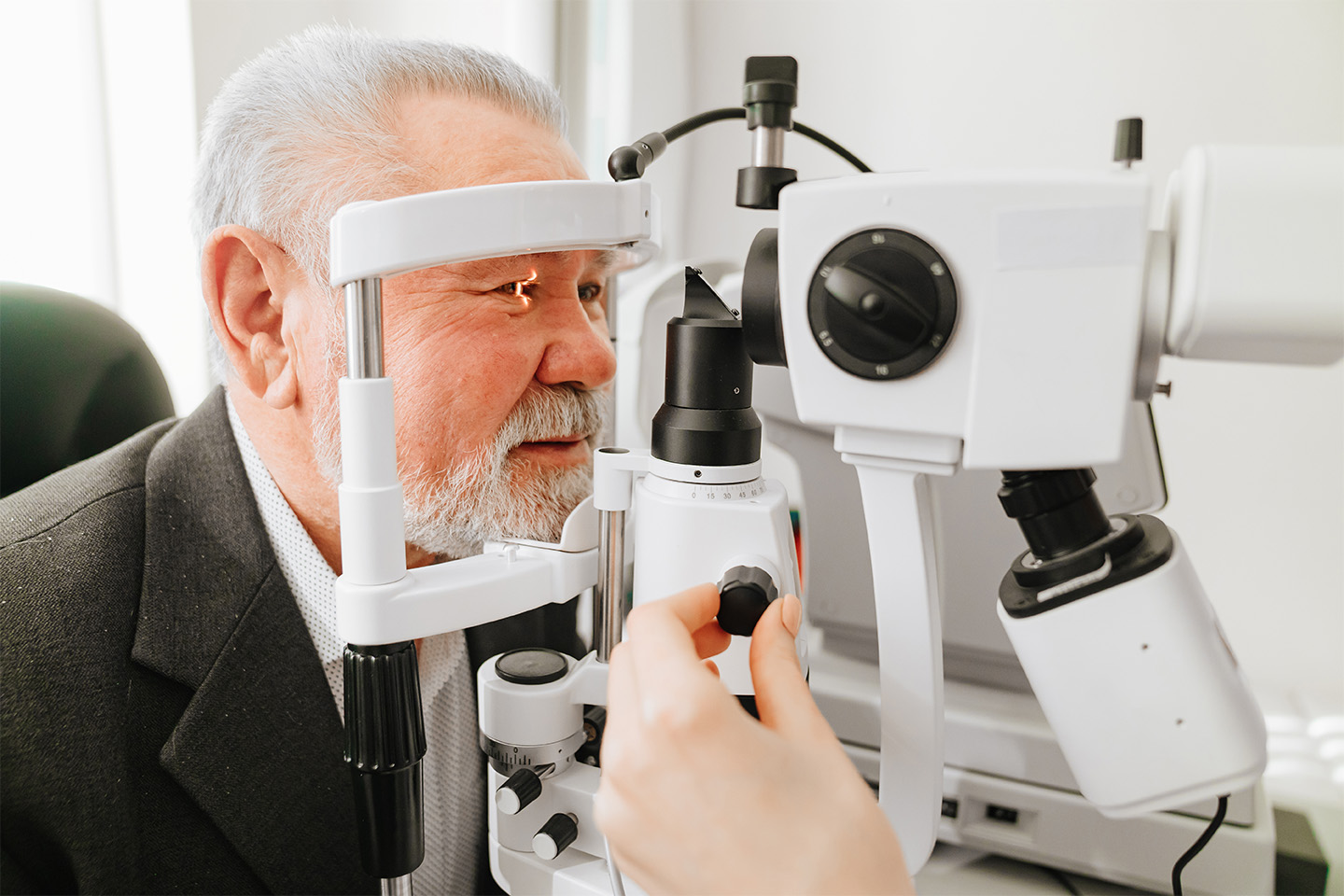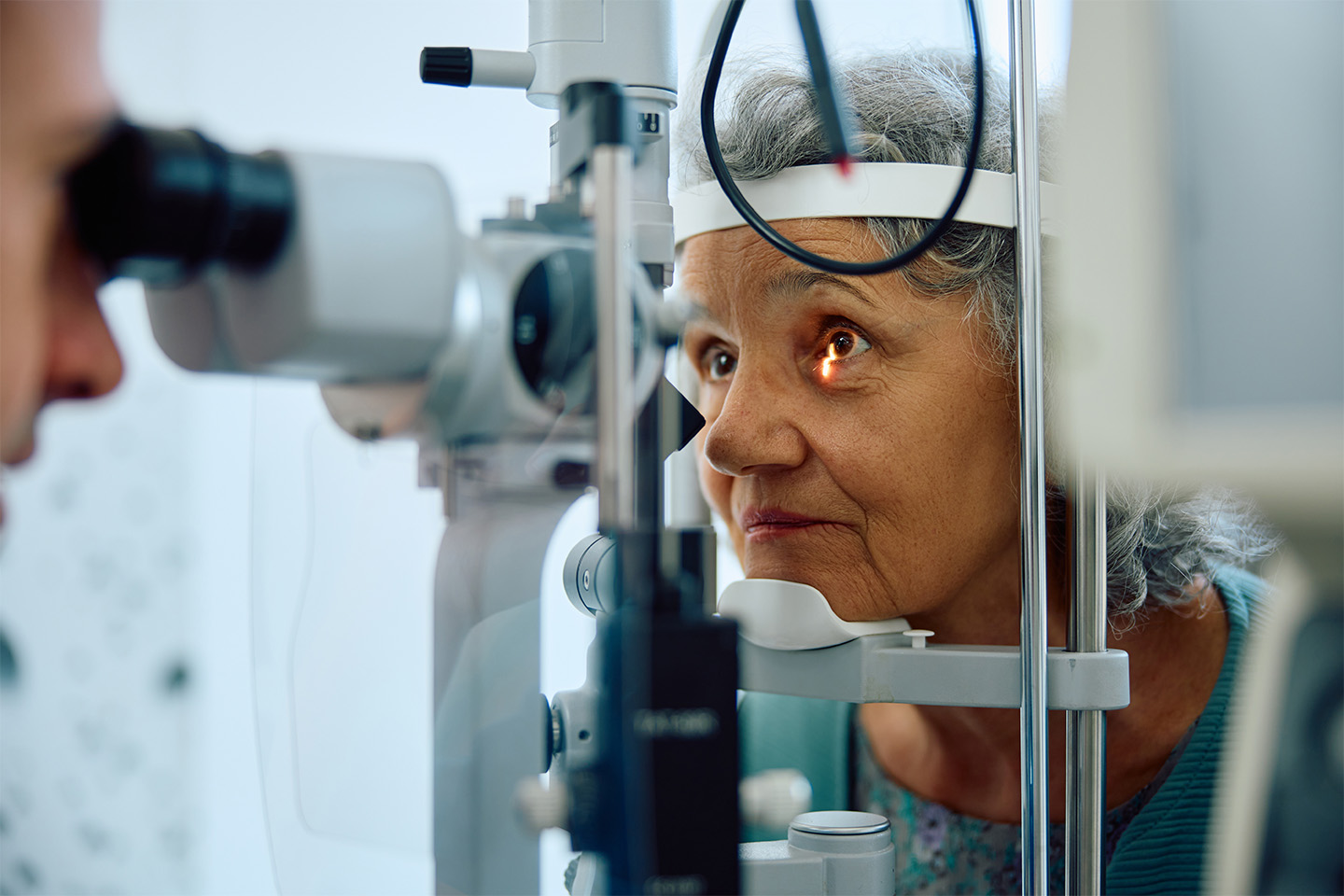What are the Risk Factors Associated with Glaucoma?

January is Glaucoma Awareness Month, which is important as ever, given that experts estimate about half of individuals with glaucoma are not aware that they have it. This prevalent condition rarely causes any noticeable symptoms until the later stages, making it hard to catch without professional help. Because of this, it’s crucial to know the risk factors that make you more susceptible to glaucoma so you can be prepared to prevent or swiftly treat it.
What is Glaucoma?
Glaucoma is a group of eye conditions that damage the optic nerve — the structure that sends signals from the retina to the brain to create images. Essentially, the aqueous fluid should drain in and out of the eye equally. However, improper drainage or excessive fluid production can cause fluid build-up, which increases intraocular pressure (IOP) that breaks down the optic nerve. Over time, this deterioration gradually causes blind spots that can go unnoticed until there is about 40% vision loss and irreparable damage.
10 Common Risk Factors for Glaucoma
Some characteristics can make you more likely to develop this condition:
- Age – Being over 60, or 40 for African Americans
- Race – Individuals of African, Caribbean, Hispanic, and Asian descent
- Family History – If a sibling or parent has had glaucoma, then the primary open-angle variation is more common.
- Medical Conditions – Conditions related to blood flow, including migraine, sleep apnea, high blood pressure, low blood pressure, and diabetes (nearly double the risk)
- Elevated Eye Pressure – This is considered the direct cause of glaucoma and can occur naturally or rise over time based on other risk factors.
- Eye Injuries & Surgeries – Blunt trauma or sports injuries, as well as multiple surgeries, lead to inflammation that alters the structure of the drainage system, which increases IOP.
- Thin Corneas – Especially when the cornea is thin in the center.
- Corticosteroid Use – Continued use of corticosteroids, such as eye drops, pills, inhalers, and creams, may increase chances by 40%.
- Abnormal Optic Nerve – An inherently large nerve cup, or one that grows as glaucoma develops.
- Strong nearsightedness or general farsightedness
Glaucoma Treatment Options in Greater Dallas
There is no cure for glaucoma, but the condition can be controlled with early and proper treatment. Keep in mind that it goes asymptomatic until the extremely late stages, so it is essential for you to undergo regular eye exams, especially after 40. The top eye doctors in greater Dallas will analyze your eye pressure levels and examine your optic nerve and other eye structures to ensure glaucoma is not developing.
After your diagnosis, your eye doctor will craft a unique treatment plan starting with therapy to preserve your remaining eyesight. The remaining steps will depend on the type of glaucoma (most commonly open-angle or angle-closure), the degree of progression, and your risk factors.
Most glaucoma treatment options in greater Dallas will encompass a combination of the following methods:
- Medicated Eye Drops – Eye drops will be prescribed to control eye pressure by encouraging drainage or decreasing fluid production.
- Oral Medication – These medications are also designed to control intraocular pressure.
- Laser Surgery – Kleiman Evangelista Eye Centers offers various treatment options based on your needs:
– Selective Laser Trabeculoplasty – Mainly used for open-angle patients; the laser makes the drainage angle more efficient to increase fluid flow.
– Laser Peripheral Iridotomy – Commonly used for angle-closure; this procedure creates a small hole on the iris to help fluid flow to the drainage point by creating an alternative fluid pathway.
– iStent® – For those with glaucoma who are also starting to develop cataracts, an implanted stent helps relieve pressure in conjunction with cataract surgery.
At Kleiman Evangelista Eye Centers, our goal is to help you maintain clear vision, which starts with catching any underlying conditions that could steal your sight. Our team of the top eye doctors in greater Dallas is ready to diagnose glaucoma at any stage and work diligently to preserve your vision and control its progression. If you’re at greater risk for developing this condition, be sure to schedule your annual eye exam and ensure that your vision is still in great shape.









